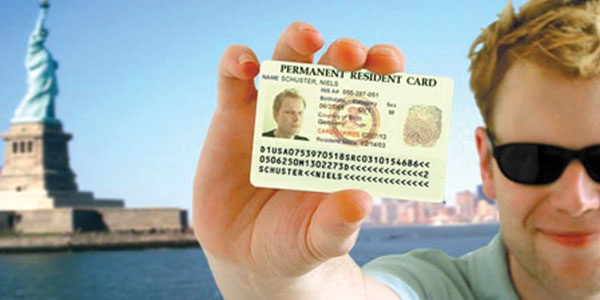
Con las vacaciones acercándose, muchas personas están empezando a hacer planes de viaje. Si eres residente permanente, cuentas con algún estatus de no inmigrante o estás en proceso de expulsión, existen pasos importantes que debes seguir antes de viajar.
Si eres residente permanente, puedes viajar fuera de los Estados Unidos hasta por seis meses. Asegúrate de que tu tarjeta de residencia no expire durante ese tiempo y que cuentes con un pasaporte válido de tu país de origen. Si pasas más de seis meses fuera de los Estados Unidos en un solo viaje, te arriesgas a perder tu estatus de residente permanente.
Si tienes antecedentes penales, esto podría desencadenar un caso de inadmisibilidad y te podría ser negado el reingreso a los EE.UU. Es importante hablar con un abogado antes de viajar.
Si cuentas con TPS, asilo, DACA o estás en espera de un ajuste de estatus, entonces debes aplicar para un permiso y ser aprobado para viajar fuera de los Estados Unidos. La aplicación que tendrá que presentarse ante el USCIS es la I-131 Aplicación para Permiso de Viaje (Application for Advanced Parole). Es muy importante que se tenga el aprobado el permiso antes de salir de Estados Unidos. Si no cuentas con el, es probable que no se te permita volver a entrar a Estados Unidos. El tiempo del proceso para el permiso puede tardar hasta tres meses, así que asegúrate de aplicar con antelación a tu viaje.
Si actualmente te encuentras en proceso de expulsión, asegúrate de consultar con tu agente de ICE o ISAP antes de viajar fuera de tu estado. Puede que tu agente quiera saber sobre tus planes de viaje y asegúrate de no faltar a ninguna de tus citas o audiencias judiciales. No te esta permitido viajar fuera de los Estados Unidos, ya que podrías provocar tu expulsión.
Hay otros estatus que no te permiten salir de los Estados Unidos, como el estatus T de no inmigrante. Si tienes alguna pregunta sobre si estás calificado para viajar o qué pasos debes seguir antes de salir, asegúrate de hablar con un abogado antes de planear tu viaje.
_______________________________________________________________________________________________________________
McCrummen Immigration law group column
With the holidays approaching, many people are starting to make plans to travel. If you are currently a permanent resident, have a nonimmigrant status, or are in removal proceedings, there may be important steps for you to take before you travel.
If you are a permanent resident, you are free to travel outside of the United States for up to six months. Make sure that your green card will not expire during that time, and that you have a valid passport from your home country. If you are outside of the United States for more than six months at one time, you risk abandoning your permanent resident status in the United States. If you have any criminal history, you may trigger a ground of inadmissibility and may be denied re-entry to the US. It is important to speak to an attorney before you travel.
If you have TPS, asylum, a pending adjustment of status, or DACA, then you have to apply and be approved for permission to travel outside of the United States. The application you will need to file with USCIS is I-131 Application for Advanced Parole. It is very important that you have the advanced parole approved before you depart the United States. If you do not, then you most likely will not be allowed to re-enter the United States. The processing time for the application can take up to three months, so make sure you plan to file well in advance of your trip.
If you are currently in removal proceedings, make sure to check with your ICE or ISAP officer before you travel outside of your state. Your officer may want to know about your travel plans, and make sure that you do not miss any appointments or court hearings. You are not permitted to travel outside the United States as you may be triggering your own deportation.
There are other statuses that do not permit you to leave the United States, such as U nonimmigrant status. If you have any questions about your eligibility to travel, or what steps you may have to take before you leave, please make sure to speak to an attorney before you plan your trip.










